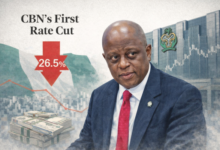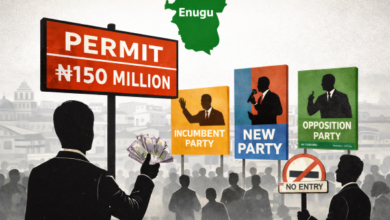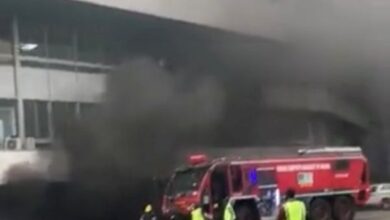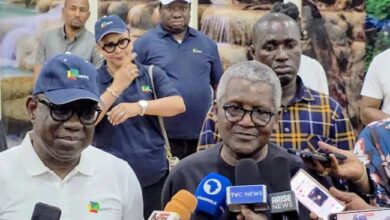Benue Carnage and the Tinubu Paradox: A Nation Bleeds, Power Responds – Too Late, Too Light
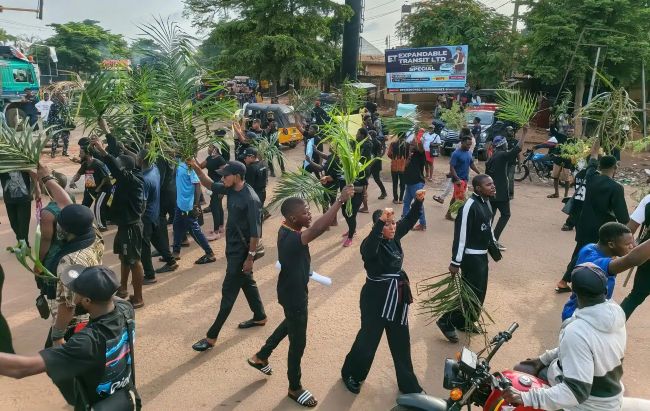
Massacre in Yelwata: Reprisal or Genocide?
The gory reality of 59 lives—including military personnel and civilians—lost in Yelwata, Benue State over the weekend has thrust Nigeria’s deepening security crisis back into the national spotlight. The attack, described by witnesses and officials as barbaric and unprovoked, is the latest in a string of bloodbaths that have ravaged farming communities across Nigeria’s North Central corridor.
While the official response from President Bola Tinubu surfaced on Sunday evening via a statement by Bayo Onanuga, his Senior Special Adviser on Information and Strategy, it has done little to calm national outrage. If anything, it has amplified accusations of executive inertia, policy disconnect, and a troubling normalisation of violence.
President Tinubu, in the statement, renewed a standing order previously issued to security chiefs to restore peace in Benue—an order that has apparently gathered dust in bureaucratic drawers as massacres continued unabated. The President also directed the Governor of Benue State, Rev. Fr. Hyacinth Alia, to initiate dialogue and reconciliation among “warring parties”—a phrase that has sparked a fresh round of criticism.
Behind the Rhetoric: A Leadership Vacuum in Crisis Management
Analysts and citizens alike are questioning why a “renewed directive” is necessary if an earlier one was already issued. Why were no sanctions meted out to the security chiefs who allegedly failed to act? Why did the President choose to reiterate commands instead of demanding results or taking decisive corrective action?
A scathing open letter from a concerned Nigerian, Citizen Kennedy Emetulu, laid bare the frustrations of many. The letter called out what it describes as “confusion at the heart of your government,” arguing that Mr. Tinubu’s belated and toothless reaction risks emboldening perpetrators and eroding public confidence.
“Who is really in charge?” the letter asked. “Is it the President or the security bosses who defy directives with impunity?”
This episode has brought to the surface a disturbing contradiction: while the President asserts leadership, the machinery of state appears sluggish, fragmented, and devoid of urgency. The absence of meaningful state visits, military offensives, or policy shifts has led critics to accuse the federal government of political cowardice and moral disengagement.
The Politics of Language: ‘Reprisal Attacks’ or Ethnic Cleansing?
Perhaps the most contentious aspect of the presidency’s statement is its choice of language. By labelling the Yelwata massacre a “reprisal attack,” the statement inadvertently suggests moral equivalence between the victims and the perpetrators.
Yet, neither state intelligence nor local accounts support the notion of any prior provocation by the Yelwata community. Even the Benue State chapter of the APC, Tinubu’s own party, has explicitly described the attack as “unprovoked ethnic cleansing.” This contradiction reveals a serious communications failure—one with grave implications in a state scarred by identity politics and historical grievances.
“We cannot reconcile dialogue with genocide,” Emetulu wrote, adding, “You don’t sit across the table with people who butcher babies in their sleep.”
The State of Emergency Argument: Constitutional Power or Political Will?
The letter urges the President to invoke Section 305 of the 1999 Constitution, declaring a state of emergency in Benue without suspending the state government, citing the failure of both the state and federal authorities to stem the tide of bloodshed.
Critically, the recommendation is anchored not in partisan antagonism but in legal authority and national interest. A properly constituted state of emergency would, for six months, empower the armed forces to decisively comb through volatile territories and eliminate militias with impunity—an option many believe has been unjustly withheld in deference to political optics.
National Optics: From Rivers to Benue, Who Deserves Presidential Urgency?
The contrast between President Tinubu’s swift declaration of emergency in Rivers State over political infighting and his delay in addressing mass killings in Benue is, for many, both glaring and damning.
In Rivers, a political turf war prompted direct federal intervention. In Benue, decapitated children and torched homes elicited a repeat memo. The optics suggest a disturbing misalignment of political priorities and human values.
Beyond Condolences: What Should Happen Next?
BRANDECONOMY’s analysis suggests the following policy and action priorities:
- Declare a constitutionally sound State of Emergency in Benue State, focusing on military pacification and justice, not political posturing.
- Deploy an elite Joint Task Force reporting directly to the NSA and Defence HQ to dismantle militia camps and reclaim contested rural zones.
- Publicly sanction or reassign ineffective security leaders who failed to act on earlier presidential orders.
- Visit Yelwata immediately to demonstrate empathy, political will, and the seriousness of the presidency’s commitment.
- De-link dialogue from violence. Reconciliation should be conditional on disarmament and prosecution—not cohabitation with genocidaires.
The Big Picture: Leadership, Justice & Nigeria’s Survival
Benue is not just a flashpoint; it is a test case. It represents the frontlines of Nigeria’s agrarian insecurity, ethnic fault lines, and the battle between constitutionalism and impunity. If the Tinubu administration cannot demonstrate the will to confront this crisis decisively, it risks feeding a narrative that the Nigerian state has become complicit in its own unravelling.
In the words of Emetulu, “Enough is enough. Nigerians are watching. The world is watching. But you are the one leading. We watch.”
BRANDECONOMY’s Note:
The role of leadership is not merely to speak. It is to act when it matters most. And in Benue, action is already long overdue.





